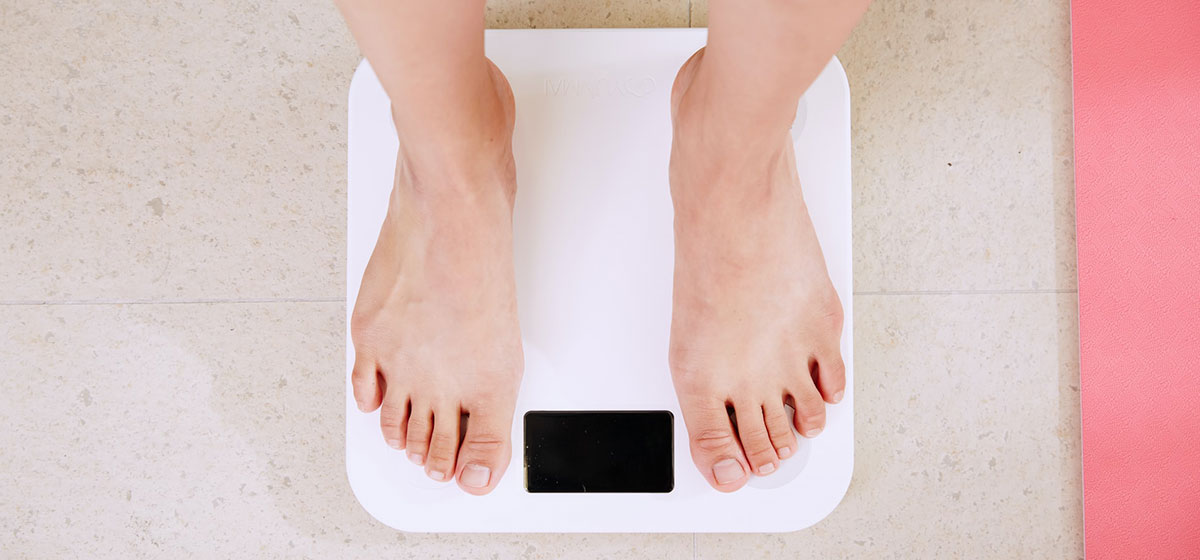Must We Gain Weight as We Grow Older?

Question: “My middle-aged friends and I watch what we eat and try to stay active, but all of us seem to be gaining weight as we get older. Is getting fatter simply an unavoidable consequence of aging?”
Although weight gain is generally considered part of the aging process, there are no legitimate reasons why a person cannot maintain the same level of fatness (percent body fat) throughout life. The fact remains, however, that most of us will get fatter as we get older. This situation is not inevitable but typically occurs due to one or both of the following scenarios.
Physical activity declines, causing energy requirements to decrease. Most of us become less physically active as we enter middle-age, and, as a result, require fewer calories to maintain body weight. Even though we may be consuming as many calories per day as when younger, we now require fewer calories to meet daily needs and begin to increase levels of body fat.
Muscle mass gradually decreases. Most adults begin to lose muscle tissue about ½ pound per year after age 30. The decline accelerates after age 65 or so unless we take measures to reverse the process. Muscle is a metabolically active tissue that requires calories simply to maintain it, so when we lose muscle mass, our metabolism slows and energy requirements diminish.
Keep in mind that adding to total fat mass does not necessarily equate to a corresponding increase in body weight. It is possible to get fatter without gaining weight (in pounds)! This is because muscle tissue has greater density (it weighs more) than fat tissue, so as we gradually lose muscle mass and increase fat stores, body weight may not change significantly. The composition of that weight will have changed, however, and as a result the body gradually takes on a softer and less defined shape.
Body composition vs. body weight
The human body is composed of two general categories of tissue: fat-free (lean) tissue which includes muscles, bones, organs and connective tissues, and fat (adipose) tissue. Body composition, commonly expressed in the form of % body fat, refers to the relative percentages of lean mass and fat mass in relation to total body weight. Body composition often reflects a more accurate picture of their physical status than does body weight. For example, the body composition of a 100-pound woman with 20 percent body fat consists of 20 pounds of fat tissue and 80 pounds of lean tissue. In comparison, another woman could also weigh 100 pounds but be at 40 percent body fat, meaning her body weight is comprised of 40 pounds of fat tissue and 60 pounds of lean tissue. Although both women weigh 100 pounds, one is obviously in a healthier physical state than the other. Maintaining a healthy body composition places a person at a lower risk for coronary heart and artery disease, stroke, diabetes and hypertension and makes it more likely that she or he will enjoy an active lifestyle. Physical and health considerations aside, body composition is also important because it can influence self-concept. Many societies, including our own, place value on a lean body appearance. Obesity, particularly in women and children, can contribute to a negative body image and poor self-concept.
Managing body composition
The composition of our body is influenced by a complex mix of factors. Studies of identical twins raised apart suggest that there is a genetic component to body composition. This is not surprising. We know that body shape, size, musculature and basal metabolism all have a genetic root, and each of those factors is indirectly linked to a person’s body weight and body composition. Does this mean we are at the mercy of our genes? Not necessarily. While it is true that we can’t do much to alter the genetic component, we can manipulate certain environmental factors that contribute to increased body fat stores as we get older. Both fat-gaining scenarios discussed earlier are within our direct control and can be minimized through lifestyle changes. A regular program of resistance (weight) training in adulthood will serve to maintain muscle mass, and a physically active lifestyle burns calories.
In summary, the primary cause for increasing fat stores at any age remains as it has always been: consuming more calories (energy) than are expended on a regular basis. When viewed from this perspective, maintaining a healthy body composition is in large part a matter of balancing the number of calories consumed with the number of calories burned through physical activity and normal metabolic processes. This relationship between energy-in and energy-out is commonly referred to as “energy balance.”
To maintain the same level of body fat in middle age that you did as a young adult will require a holistic lifestyle approach. You must eat healthy, partake in some form of aerobic exercise on a regular basis and stick to a program of resistance training to minimize loss of muscle mass. If you are willing to do so, then there is no reason for you to “get fatter” as you get older.




